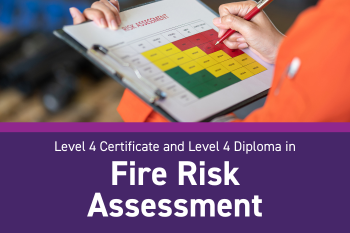SFJ Awards are launching a new Level 4 Certificate for Protective Security Advisers in collaboration with the Protective Security Centre (Home Office) to support professionalisation and convergence of educational standards in the security sector.
Protective security combines the four disciplines of physical, personnel, technical and cyber security to safeguard an organisation and its assets against multiple interrelated security threats.
The Level 4 Certificate for Protective Security Advisers is mapped to the protective security adviser apprenticeship standard approved for delivery in England and has been developed as a standalone qualification for learners in Northern Ireland, Scotland and Wales. Learners in England will remain eligible for entry to the Level 4 Certificate for Protective Security Advisers, an alternative to the apprenticeship route.
The content of both the protective security apprenticeship standard and level 4 certificate have been endorsed by all three of the government’s National Technical Authorities: National Protective Security Authority (NPSA), UK National Authority for Counter Eavesdropping (NACE) and National Cyber Security Centre (NCSC) – the first ever security sector qualifications to do so.
Endorsement by National Technical Authorities reflects the increasingly complex nature of the security threats posed by serious and organised crime and the need for convergence, explains David Higham – Managing Director at Ofqual regulated awarding organisation SFJ Awards.
“The market for protective security advisers and operatives is expected to grow exponentially in coming years as criminals become more advanced in their efforts to exploit weaknesses across our digital, physical and human resources,” says David.
“The introduction of Martyn’s Law will likely kick this up a gear as enhanced tier venues such as large hospitality and sporting arenas will be required by law to adopt a protective security approach to assess their exposure to physical, personnel, technical and cyber security threats and mitigate against the risk of terror attacks.”
“The development of these educational standards is therefore timely and will support improved career pathways and workforce development in response to market need, helping to improve the resilience of the UK overall.”
More than 50 representatives from both the public and private sector sat on the expert working group to design the apprenticeship standard and provide feedback on the qualification. Professor Alison Wakefield, Professor of Criminology and Security Studies at University of West London is one of the working group members and comments:
“This qualification provides a clear, structured framework for protective security advisors, ensuring they have the necessary baseline knowledge and competencies.
“It provides a platform for learners to specialise within their chosen security sector after establishing a solid foundation in protective security principles.
“Moreover, this will also help to improve standardisation across sectors and support organisations to implement the very best practices in protective security.”
The Level 4 Certificate for Protective Security Advisers consists of 14 mandatory units, covering a broad range of topics including: Crime and Security Science, Legislation and Governance, Asset, Threat, and Vulnerability Management, Security Risk Assessment, Physical, Personnel, and Cyber Security, Incident Response and Investigations, Security as a Business Enabler and Effective Communication and Reflective Practice.
The qualification involves 111 hours of Guided Learning Hours (GLH) and a Total Qualification Time (TQT) of 140 hours. Learners will be assessed via a mix of theoretical knowledge assessments and practical application.





